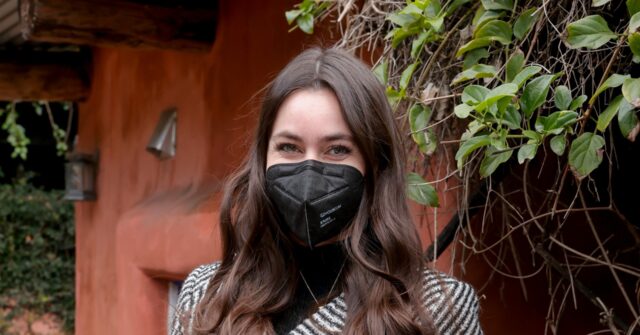Taylor Lorenz, a former journalist for the Washington Post, unleashed a fervent social media tirade regarding mask-wearing during the ongoing COVID-19 pandemic. In a series of posts on her Blue Sky account, she condemned individuals who do not wear masks, vividly describing it as “raw-dogging the air.” Lorenz’s outburst stemmed from the immense planning and substantial financial investment she made to ensure a COVID-safe environment for her recent book launch. She pointed out that every attendee was required to undergo PCR testing in advance, once again emphasizing her commitment to safety in contrast to what she perceives as reckless behavior exhibited by those who disregard public health measures.
Lorenz expressed her frustration over critics who highlighted a brief moment where she was photographed without a mask during the outdoor event. She defended herself, noting that high-risk individuals, like herself, could momentarily remove their masks for photographs when adequate precautions—such as testing and proper spacing—were in place. Her key assertion was a stark difference in responsibility and awareness regarding COVID-19 risks, explicitly contrasting her careful planning with the behavior of those she labels as irresponsible for their lack of precautions. Her post serves as a powerful reminder of the difficulties faced by those who are immunocompromised during this health crisis.
The context of Lorenz’s comments on social media was further complicated by backlash she faced from users who challenged her views. Much of the discourse revolved around broader themes of COVID denialism and the perceived negligence of some members of the public in adhering to health guidelines. Lorenz’s sentiments were directed not only at those refusing to wear masks but also at a larger societal issue where she felt the government was downplaying the seriousness of the pandemic. This perception of negligence is shared by many in her position, who feel that their health and safety are compromised by the actions of others.
Moreover, Lorenz disclosed her personal health struggles, stating she is severely immunocompromised and frequently hospitalized, similar to someone undergoing chemotherapy. Making her medical condition public serves to underline her call for societal empathy, urging people to wear masks not only to protect themselves but also to safeguard vulnerable individuals. By sharing her experiences, she seeks to humanize the conversation surrounding health precautions, emphasizing the gravity of the situation and the responsibility that comes with public health measures.
Following her tirade, Lorenz’s social media engagement related to the pandemic achieved even more scrutiny due to the polarized nature of the conversations surrounding COVID-19. In the aftermath, she noted receiving critical responses primarily from individuals she referred to as “MAGA weirdos” and COVID denialists. While her comments may resonate with those supportive of stringent health measures, they also reveal a significant divide in public sentiment regarding the pandemic that influences social discourse. This polarization raises questions about how public health messaging can effectively reach diverse populations amidst a backdrop of misinformation and differing ideologies.
The fallout from Lorenz’s outburst continued to be a topic of debate, especially considering her previous departure from the Washington Post earlier in the year. This incident, coupled with her accusations against President Biden over his policy on the Israeli-Gaza conflict, highlights the complexities faced by journalists as they navigate their careers while expressing personal opinions. As Lorenz continues to advocate for COVID-19 safety measures, her stance reflects a broader struggle between public health advocacy and opposition faced from various factions of society, underscoring the critical importance of dialogue and understanding in the ongoing fight against the pandemic.

